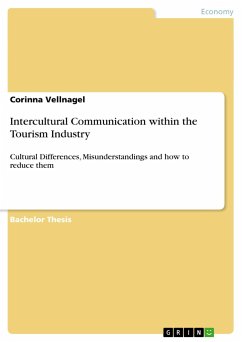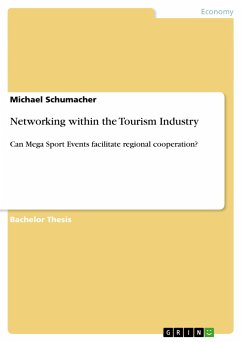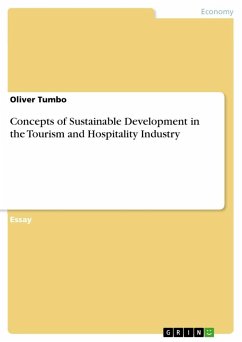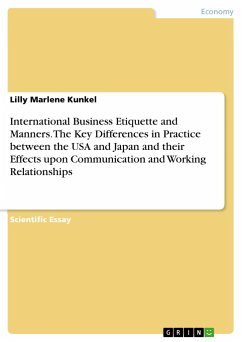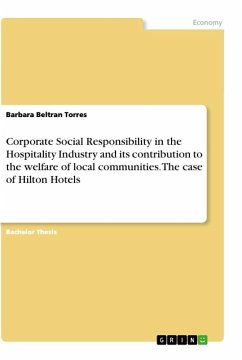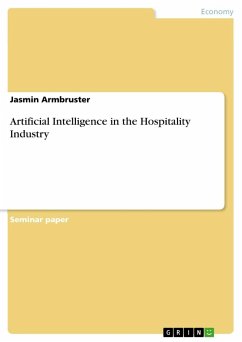Bachelor Thesis from the year 2010 in the subject Tourism - Miscellaneous, grade: 2,0, University of Cooperative Education Ravensburg, language: English, abstract: Tourism is the most superficial way of an intercultural encounter1 and one of the biggest industrialsectors in the world. "The WTTC (World Travel and Tourism Council) estimates thatover 230 million jobs in world are supported by the tourism industry, which equates to 8.3 percent of total global employment, or one in every 12 jobs."2 Furthermore, the latest statisticsfrom 2008 show that tourism has not reached its peak yet. Over 80 countries earned morethan EUR 642 billion through international tourism in 2008, while in 1990 it had only been EUR 207billion.3 Another statistic representing and pointing up the booming tendency is the one showingthe international tourist arrivals: while there had only been 25 million arrivals in 1950, thenumber constantly rose to 922 million in 2008 and by 2020 1.6 billion international touristarrivals are expected.4 With so many tourists spending time abroad every year it is a logicalconsequence that different culture groups meet. From time to time, people may spend twoweeks in Turkey, Dubai, Cancun or on Bali. This unfortunately might happen without thepeople even getting the local culture rudimentarily. But if they try to get to know the local culture,difficulties may occur. It is not only the language which is different and causes troublesand misunderstandings in communication; attitudes and the way people think vary greatly.Tourists often do not prepare themselves properly for their stays abroad; just reading a travelguide may not be sufficient at all. When going abroad people need to be aware of differentbehavioural rules and patterns. But not only tourists have to face this problem. In the tourismindustry many people work abroad which not only leads to multicultural teams but also tomisunderstandings going back to cultural differences. These groups, both tourists and employees,need to face their upcoming cultural communication challenges. Communication isan important and indispensible commodity; especially in the tourism industry conversationsand interpersonal contact are trivial. Imagine a city tour or a checkout without a single wordspoken. According to scientific investigations on interpersonal communications in the economy,managers spend 70% of their daily labour time with communicating.5 Due to the increasinginternationalisation and globalisation of the tourism industry, the effects of interculturalrelations on human resource management need to be taken into consideration.

